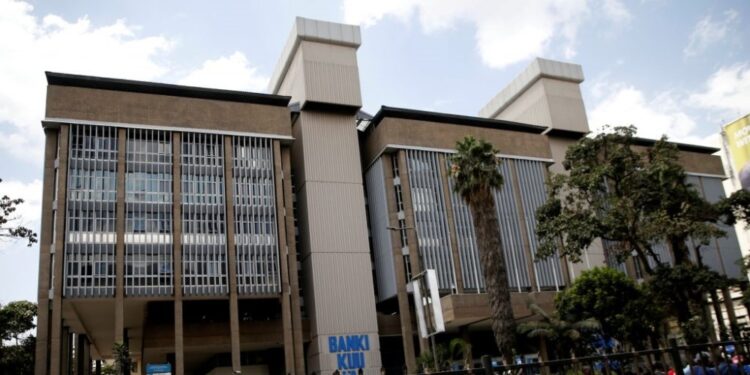The Central Bank of Kenya (CBK) is the monetary authority of Kenya. Pursuant to the CBK Act, the Central Bank promotes financial stability through regulation, supervision and licensing of financial institutions under its mandate. The Central Bank of Kenya is responsible for formulating monetary policy to achieve and maintain price stability.
The Central Bank also promotes financial stability; an effective and efficient payment, clearing and settlement system; formulates and implements foreign exchange policies; holds and manages foreign exchange reserves; issuing of currency; and is the banker for, adviser to and fiscal agent of the Government. All these efforts are geared towards fostering liquidity, solvency and proper functioning of the financial system.
The Central Bank of Kenya (CBK) has the following functions.
1. Monetary policy
The Central Bank of Kenya undertakes economic and financial analysis and monitors a wide range of indicators on the economy to support monetary policy decisions. Monetary policy consists of decisions and actions taken by the Central Bank to ensure that the supply of money in the economy is consistent with growth and price objectives set by the government. The objective of monetary policy is to maintain price stability in the economy.
The Central Bank of Kenya’s principal objective is formulation and implementation of monetary policy directed to achieving and maintaining stability in the general level of prices. The aim is to achieve stable prices, measured by a low and stable inflation, and to sustain the value of the Kenya shilling. The Central Bank collects and analyses economic and financial data and undertakes research in micro- and macro-economic activities to inform the formulation of monetary policy geared towards achieving and maintaining stability in the general level of prices.
2. Financial markets
The Central Bank of Kenya uses various tools to manage the supply of money in the economy and the bank also manages issuances and repayment of Treasury Bills and Bonds. Within its financial markets role, the Central Bank of Kenya implements monetary policy decisions, manages the country’s foreign exchange reserves and manages the government’s domestic debt.
To implement monetary policy decisions, the Central Bank employs financial tools at its disposal to foster liquidity in the financial market and manage growth of credit in the economy. The Bank manages the country’s foreign exchange reserves and intervenes to mitigate unforeseen disruptions in order to ensure stability in the foreign exchange market. Further, the Bank discharges its agency role to the National Treasury as it manages the Government’s domestic borrowing.
3. Bank supervision
The Central Bank of Kenya licenses, regulates and supervises financial institutions under its purview, including commercial banks, microfinance institutions, forex bureaus and representative offices of foreign banks. One of the statutory objects of the Central Bank of Kenya under the Central Bank Act (Cap 491) is the promotion of financial stability through maintenance of a well-functioning banking system.
One of the Central Bank of Kenya’s mandates is to foster the liquidity, solvency and proper functioning of a market-based financial system. The Central Bank provides legal and regulatory framework and issues prudential guidelines to govern the operations of financial institutions under its mandate. It also licenses and undertakes surveillance of the financial institutions to ensure compliance with laws and regulations.
4. National payments system
The Central Bank of Kenya licenses and monitors payment systems that facilitate funds transfers between parties. In addition, CBK facilitates settlements through the Kenya Payments and Settlement System (KEPSS). National Payments System are the conduits through which buyers and sellers of financial products and services make transactions and are an important component of a country’s financial system.
In Kenya, participants comprise of the Central Bank of Kenya, the Government, Commercial Banks, Financial Institutions and Payment System Providers. Safe and efficient payment and settlement systems is a key component of an effective and efficient financial sector. The Bank formulates and implements such policies as best promote the establishment, regulation and supervision of efficient and effective payment, clearing and settlement systems that promotes social and economic activities.
5. Banking services
The Central Bank of Kenya provides banking services to the governments (National and County) and commercial banks. The Central Bank is the banker for the government ministries, departments and agencies, semi-autonomous government institutions and county governments. These institutions hold a variety of accounts with the Central Bank, depending on their needs, which allow them to receive deposits and make payments. The Central Bank monitors these accounts to ensure that the institutions aren’t at risk of overdraft, and also advises the institutions on financial matters.
6. Currency services
The Central Bank of Kenya is responsible for the issuance of Kenyan currency and ensures that the currency that the currency is free from counterfeits, clean and fit for circulation. By law, the Central Bank of Kenya is the only institution in the country that can issue currency. To successfully accomplish this mandate, the Central Bank ensures that it procures adequate and secure currency for distribution to meet the country’s needs.
The Central Bank of Kenya is the only institution in Kenya with full discretion and sole rights to issue currency notes and coins. The Central Bank is responsible for the design, production and distribution of the Kenya currency. The bank ensures that there is adequate supply of clean currency to support social-economic activities.


































































































































































































